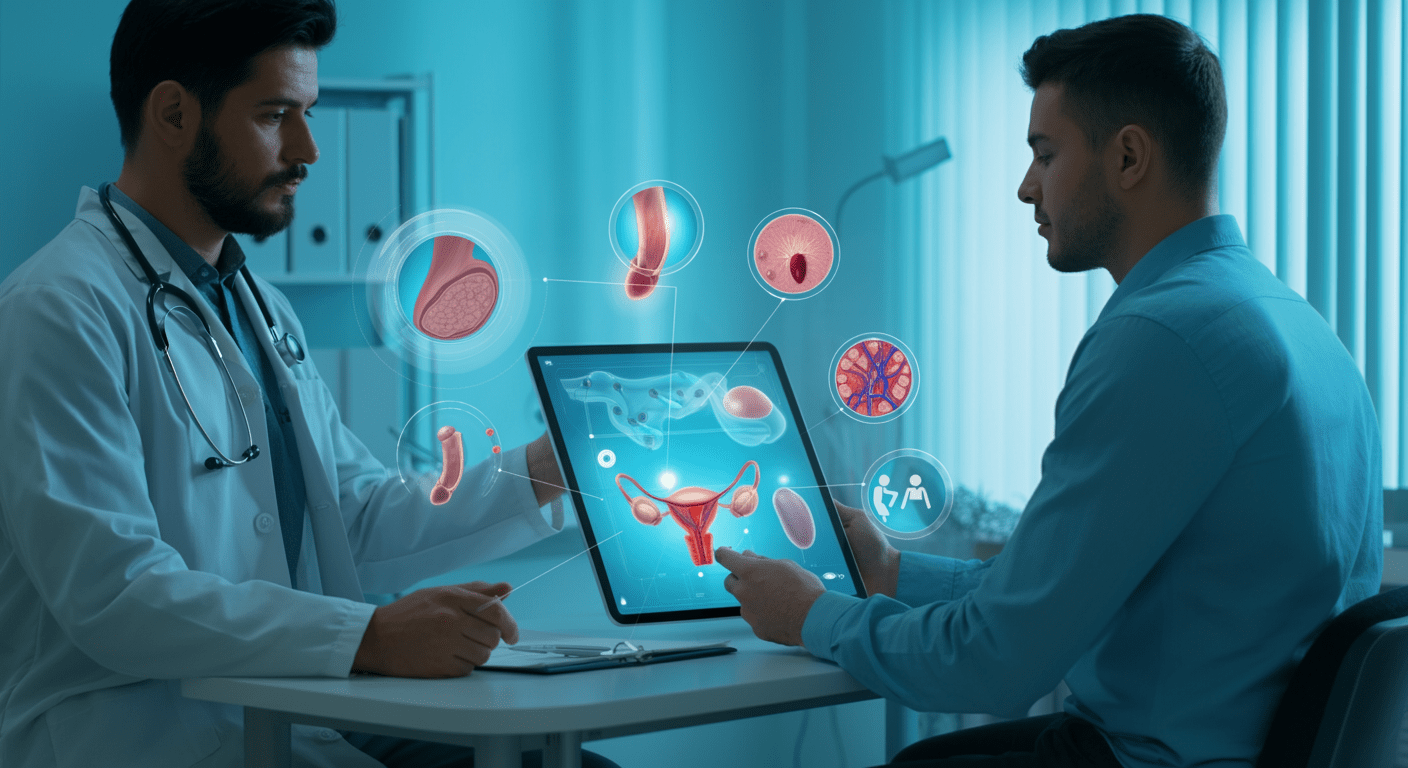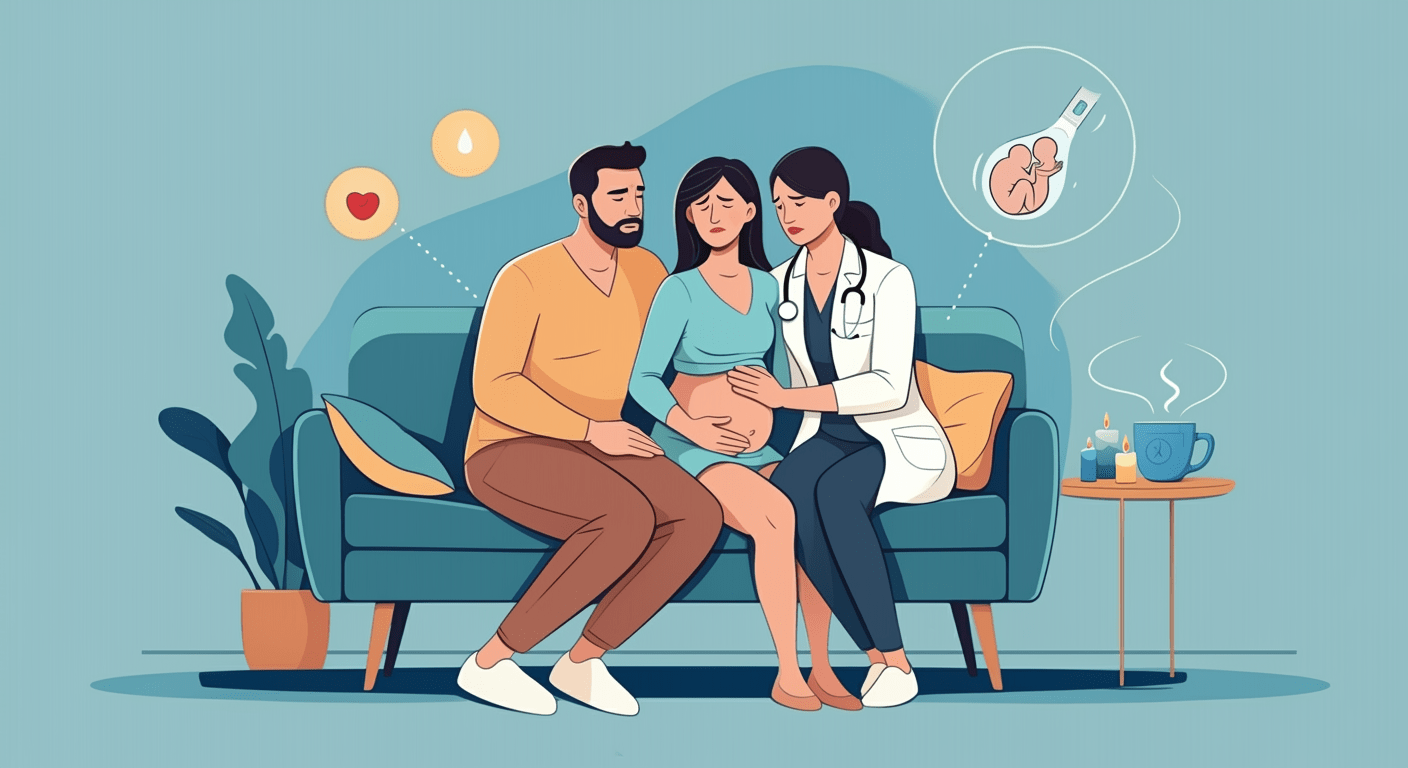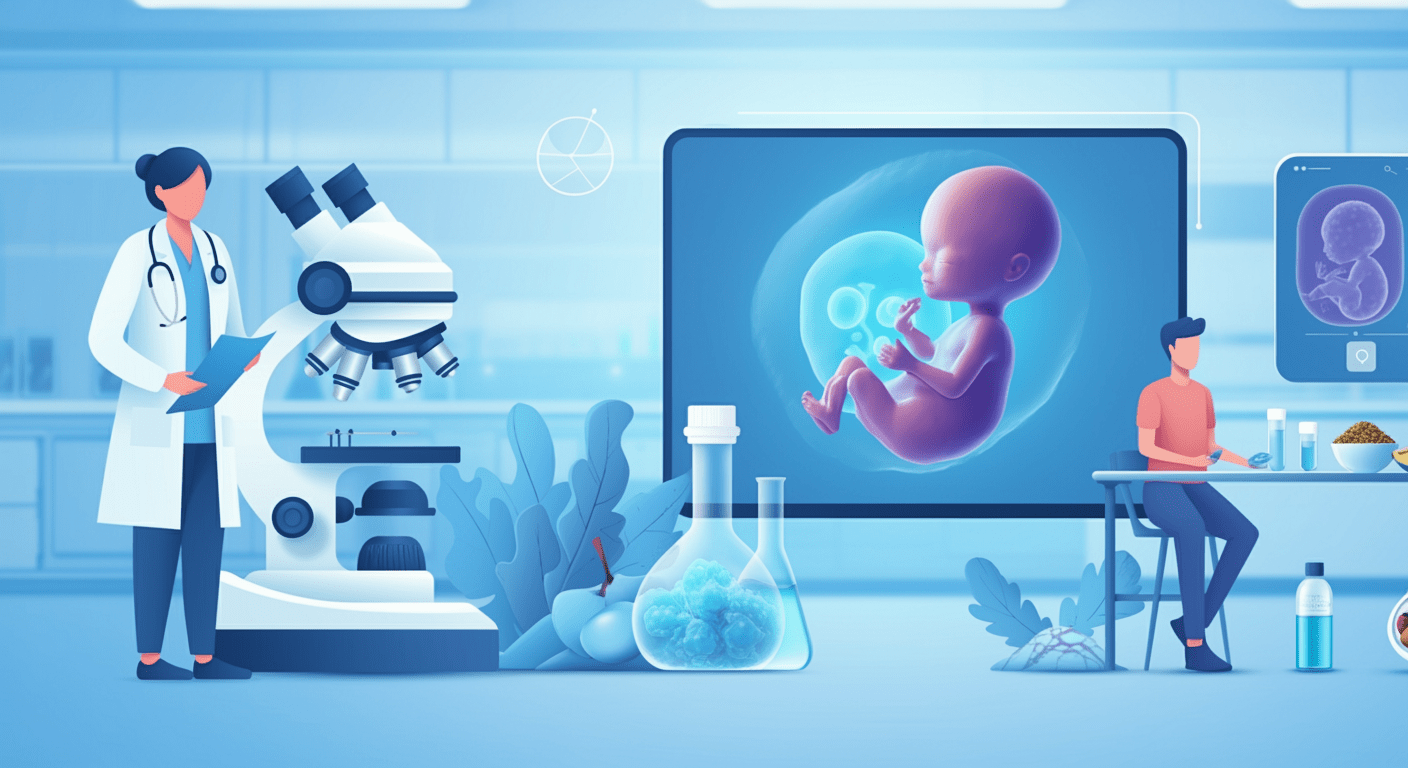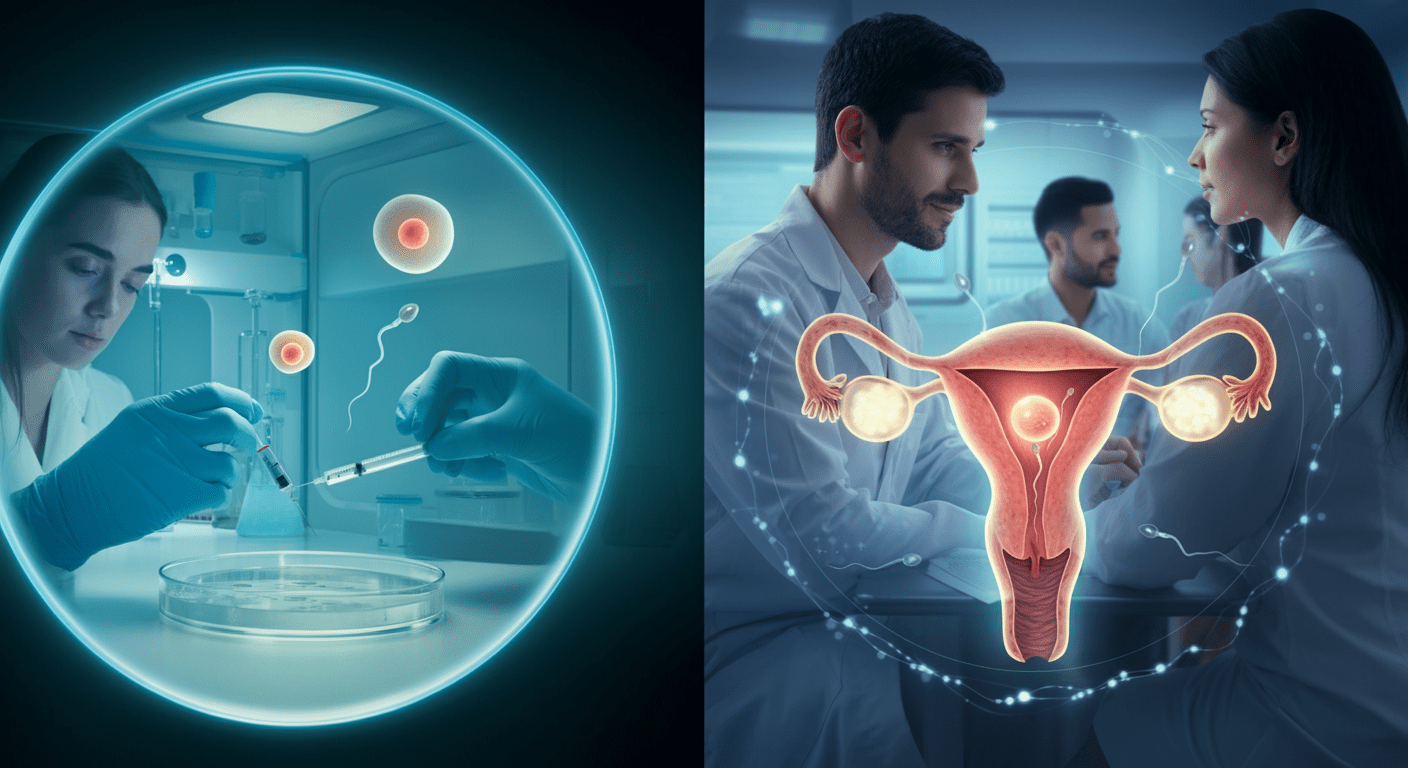Undergoing In Vitro Fertilization (IVF) is a significant and life-changing step for many individuals and couples trying to conceive. One of the most frequently asked questions during this time is, “Will I feel pregnant after IVF?” The IVF journey can be an emotional rollercoaster, filled with hope, anticipation, and a great deal of uncertainty. It’s important to understand that while some early signs after IVF may suggest pregnancy, others are simply side effects of the fertility treatments themselves. Let’s dive deeper into this question, explore the various symptoms, and help you navigate the journey with more clarity.
What Is IVF and How Does It Work?
IVF (In Vitro Fertilization) is an assisted reproductive technology that involves fertilizing an egg with sperm outside the body in a lab. Once an embryo is created, it is then transferred to the woman’s uterus with the hope that it will implant and result in a successful pregnancy. IVF is often used for couples who are struggling with infertility due to various reasons, such as blocked fallopian tubes, male infertility, or unexplained fertility problems.
The process involves several stages, including ovarian stimulation, egg retrieval, fertilization, embryo culture, and embryo transfer. Once the embryo is transferred into the uterus, the waiting game begins, often leading to the question: “Will I feel pregnant after IVF?”
Understanding Early Pregnancy Signs After IVF
After the embryo transfer, many women want to know what to expect. Early pregnancy symptoms after IVF can sometimes be confusing because many of them overlap with the side effects of fertility medications. The key to answering the question “Will I feel pregnant after IVF?” lies in distinguishing between actual pregnancy symptoms and medication-induced effects.
1. Mild Cramping and Spotting: Normal or Not?
Cramping and light spotting can occur after an embryo transfer and are often the first signs that women notice. Mild cramping can result from the embryo implanting itself into the uterine lining, while light spotting may occur as a result of this implantation process. However, these symptoms can also be caused by the hormonal medications you are taking, particularly progesterone.
Progesterone is essential in maintaining the uterine lining for a potential pregnancy, but it can also cause mild cramping and spotting. This is why it’s important not to jump to conclusions based solely on these symptoms.
Key Takeaway: Mild cramping and spotting are common after IVF and can be both a sign of implantation or a side effect of medications like progesterone.
2. Breast Tenderness and Swelling: An Early Pregnancy Symptom?
Many women experience breast tenderness and swelling following an IVF procedure. This symptom can be quite prominent and may resemble the changes you would experience in a natural pregnancy. However, it’s important to note that the progesterone and estrogen hormones used during IVF can also cause breast tenderness. These hormones support the uterine lining and prepare your body for pregnancy but can also lead to swelling and sensitivity in the breasts.
Key Takeaway: Breast tenderness is a common symptom after IVF, but it can also be a result of hormonal medications used to support the pregnancy process.
3. Fatigue: Feeling Tired and Run-Down
Fatigue is one of the most commonly reported symptoms after IVF. Many women feel unusually tired, and this can be attributed to several factors. First, the IVF process is physically demanding, involving hormone injections and multiple medical procedures, which can leave you feeling drained. Additionally, the hormonal fluctuations in your body—especially progesterone—can contribute to tiredness.
Key Takeaway: Fatigue is common after IVF due to hormonal changes and the physical toll of the IVF process itself.
4. Nausea and Morning Sickness: Is It Pregnancy or Medication?
Nausea is another symptom that many women experience after IVF, but whether it’s due to pregnancy or the side effects of medications is often unclear. In early pregnancy, nausea (commonly referred to as morning sickness) is a common symptom. However, IVF medications, especially progesterone, can also cause nausea.
The onset of nausea typically occurs a few weeks after embryo transfer, and if you do experience nausea, it’s important to wait for the pregnancy test to confirm whether it is related to pregnancy or the medications.
Key Takeaway: Nausea may be a sign of pregnancy, but it is often linked to hormonal medications, so it can be difficult to distinguish between the two early on.
5. Increased Urination: A Possible Early Pregnancy Sign?
Many women report frequent urination after IVF. While this can be a sign of pregnancy, especially once the pregnancy hormone hCG is produced in the body, it can also be a side effect of IVF medications like progesterone. In early pregnancy, as the body starts to produce hCG, changes occur in the bladder and urinary tract, leading to the need to urinate more frequently.
Key Takeaway: Increased urination can be a sign of pregnancy, but it can also occur due to hormonal treatments during IVF.
6. Mood Swings: Emotional Rollercoaster
Hormonal fluctuations caused by IVF medications can lead to significant mood swings. These emotional ups and downs are often experienced by women undergoing IVF, and while they can be similar to those experienced in early pregnancy, they are also likely a direct result of the medications such as estrogen and progesterone.
Key Takeaway: Mood swings are common during IVF due to the hormonal treatments but may also be linked to pregnancy.
How to Manage Expectations During the “Two-Week Wait”
The two-week wait is the period between the embryo transfer and the blood pregnancy test. During this time, it is essential to manage expectations and emotions because the symptoms you experience may not always provide clear answers.
Here are some tips to help manage the two-week wait:
- Avoid Early Testing: Home pregnancy tests can provide false negatives if taken too early. It’s best to wait for the official pregnancy blood test.
- Stay Calm: It’s normal to experience some anxiety during this waiting period. Consider engaging in relaxation techniques, such as meditation, yoga, or deep breathing exercises, to stay calm.
- Ask for Support: It’s essential to have a support system during the two-week wait. Share your feelings and anxieties with your partner, family, or friends.
Key Takeaway: Managing expectations during the two-week wait can help reduce stress and anxiety. It’s essential to wait for the blood test results to confirm pregnancy.
When to Seek Medical Advice
While mild cramping, spotting, and other symptoms are generally part of the IVF process, it’s important to be aware of when to seek medical attention:
- Severe cramping or abdominal pain: This could indicate a complication like an ectopic pregnancy or ovarian hyperstimulation syndrome (OHSS).
- Heavy bleeding: Spotting is normal, but heavy bleeding may require medical attention.
- Fever, chills, or unusual discharge: These could indicate an infection, which requires immediate attention.
Key Takeaway: Seek medical attention if you experience severe symptoms like intense pain, heavy bleeding, or signs of infection.
Conclusion
The question “Will I feel pregnant after IVF?” is a common one, and while some early symptoms of pregnancy may occur, others are often the result of IVF medications. It’s essential to understand the differences between the two and manage expectations during the two-week wait. Symptoms such as mild cramping, breast tenderness, fatigue, nausea, and mood swings are common after IVF and may or may not indicate pregnancy. The best way to confirm pregnancy is by waiting for the official pregnancy test from your fertility clinic.
In the end, every IVF journey is unique. No matter what symptoms you experience, remember that only the blood pregnancy test will provide the true answer. Stay positive and be patient—you’re one step closer to your dream of becoming a parent.
FAQs related to the topic “Will I Feel Pregnant After IVF?
1. How soon after IVF can I expect to feel pregnant?
The feeling of being pregnant after IVF can vary from person to person. In general, most women begin to notice early signs around 1-2 weeks after the embryo transfer. This is typically the “two-week wait,” during which early symptoms like mild cramping, spotting, fatigue, and breast tenderness may begin. However, these symptoms can also be side effects of the hormones used in the IVF process. Therefore, it’s difficult to say for certain if you will feel pregnant during this time until a pregnancy test is taken. The earliest confirmation comes through a blood test performed by your fertility clinic, usually about 10–14 days after the embryo transfer.
2. Are the early pregnancy symptoms after IVF different from natural conception?
Early symptoms of pregnancy after IVF are often similar to those experienced during a natural pregnancy. These include mild cramping, spotting, breast tenderness, fatigue, and nausea. However, because IVF involves the use of hormonal medications such as progesterone and estrogen, some of these symptoms may be caused by the medications rather than pregnancy itself. For instance, progesterone, which is commonly used in IVF cycles, can cause cramping and breast tenderness, making it harder to distinguish between IVF side effects and pregnancy symptoms. Therefore, the only way to confirm pregnancy is through a blood test.
3. What are the common side effects of IVF medications that can mimic pregnancy symptoms?
IVF medications, especially hormones like progesterone, estrogen, and hCG (human chorionic gonadotropin), can cause several side effects that may mimic early pregnancy symptoms. Some of the most common IVF medication side effects include:
Cramping: Often caused by progesterone and can be mistaken for implantation cramping.
Breast tenderness and swelling: Due to the increased levels of progesterone and estrogen.
Fatigue: A common side effect of hormonal changes during the IVF process.
Nausea: Can be caused by progesterone supplementation.
Mood swings: Caused by the fluctuations in hormone levels.
Since these symptoms are similar to early pregnancy signs, it’s important to remember that they can occur due to the medications and may not necessarily mean you are pregnant.
4. Is it possible to have no symptoms after an IVF embryo transfer?
Yes, it is possible to have no symptoms after an IVF embryo transfer, or to experience very mild symptoms. Every woman’s body reacts differently to the IVF process, and not all women experience noticeable signs or symptoms immediately after embryo transfer. Some may feel perfectly fine, while others may experience more pronounced symptoms like cramping or fatigue. The lack of symptoms does not necessarily mean that the IVF was unsuccessful, as some women have healthy pregnancies without any early symptoms. The only definitive way to know is through the blood pregnancy test performed by your fertility clinic.
5. What should I do if I experience heavy bleeding after IVF?
Heavy bleeding after IVF should be taken seriously and warrants immediate medical attention. While light spotting is common during the early days after embryo transfer (especially if implantation occurs), heavy bleeding may indicate a complication. Causes of heavy bleeding after IVF can include:
Implantation bleeding: If it is accompanied by mild cramping, but it’s important to distinguish between light and heavy bleeding.
Ectopic pregnancy: If the embryo implants outside the uterus, typically in the fallopian tube, which can cause heavy bleeding and pain.
Miscarriage: Unfortunately, heavy bleeding can sometimes indicate a miscarriage, particularly if accompanied by severe cramping.
Ovarian Hyperstimulation Syndrome (OHSS): A condition caused by excessive ovarian stimulation during IVF.
If you experience heavy bleeding, it’s crucial to contact your fertility clinic immediately for further evaluation.
6. Can I take a home pregnancy test after IVF?
While it may be tempting to take a home pregnancy test after IVF, it’s important to wait for the official pregnancy test given by your fertility clinic. Home pregnancy tests can provide false negatives if taken too early because they may not detect the presence of the pregnancy hormone (hCG) at the right levels.
The two-week wait is an emotionally challenging time, and although waiting for the official blood test can be stressful, it is the most accurate way to confirm whether or not you are pregnant after IVF. Your fertility doctor will typically schedule the blood test around 10-14 days after embryo transfer, and it is the best way to get a definitive answer.
7. What happens if I experience extreme fatigue or nausea after IVF?
Extreme fatigue and nausea are common symptoms that can occur during the IVF process, especially after the embryo transfer. However, these symptoms can be related to both the hormonal medications you are taking and early pregnancy.
Fatigue: The physical and emotional stress of IVF, along with hormonal changes, can lead to significant tiredness. It’s a common side effect of the process.
Nausea: Progesterone supplementation can cause nausea, and if pregnancy occurs, morning sickness may follow shortly after. Some women experience nausea as an early pregnancy sign, but it can also be induced by the hormonal medications used in IVF.
If these symptoms are particularly severe or persistent, it’s important to consult your fertility doctor to ensure that everything is progressing well and there are no complications.







